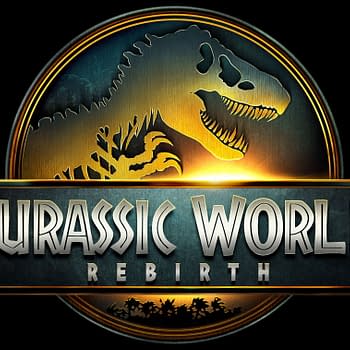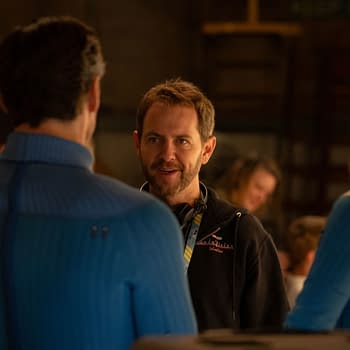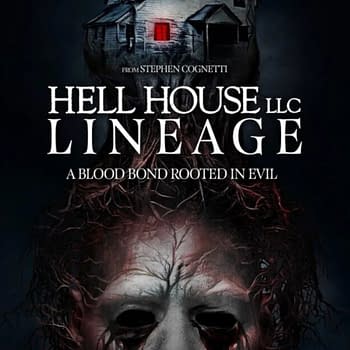Posted in: Movies, Recent Updates | Tagged: avi arad, Batman, disney, entertainment, film, fox, iron man, joss whedon, kevin feige, marvel, mutants, sony, spider-man, superheroes, venom, Warner Bros, x-men
A Modest Proposal: Marvel, Sony and Fox Need to Share IP
By Tony Panaccio
It's a Big Sandbox, People – If You Play Nice, You'll ALL Make Billions
There is one word – one ridiculous word – that Marvel cannot use in any of its self-produced films within its cinematic universe. No, it's not any of George Carlin's seven words you can't say on television. It's not a reference to sex, poo, human genitalia or Justin Bieber.
It's "Mutant," and the reason for it being removed from the vocabulary of Marvel's movies is stupid, counterproductive and reflective of the insane proportions of greed that have been reached within the Hollywood studio system. But first, a little perspective, if you please.
More than 20 years ago, the idea of an Avengers movie was nigh unthinkable. With licenses distributed around to different studios, it would have been impossible to get all those characters in a single film, let alone figure out how to make a second-tier super-team comic book relevant to mainstream audiences.
In that context, the idea of an Avengers movie grossing more than $1 billion worldwide was even more unthinkable. Against that landscape, however, it is probably time for those studios that have the rights to various Marvel intellectual property to consider doing the unthinkable once again. It's time for them to share.
The current landscape is this: Marvel owns most of its own film licenses, while key film franchise rights like the X-Men and Fantastic Four are still with Fox, and Spider-Man (the character, not just the film rights) is actually co-owned by Sony and Marvel (the terms are in Disney's 10-Q filing with the SEC from November 2012). Each studio has publicly committed to spending heretofore untold amounts of money to build their own franchises and film universes around their respectively controlled film IP. Sony has announced a Sinister Six movie, based on Spider-Man's rogue's gallery of villains, while Fox has wisely been building its own X-Men universe and is working on a similar play with The Fantastic Four. All this money is being spent on the risky proposition that each universe will work for them the same way the Avengers' universe has been working for Marvel (with every single movie in that system charting box office success to a variety of extents).
While Marvel paved the way for the shared universe concept in film, other studios are now trying to mimic that success, but those efforts are considerably risky as their films have not always generated success. Both Fantastic Four movies executed by Fox have barely made their money back, while the studio has also tried two different Wolverine films to limited success. They lack the track record that Marvel has painstakingly pioneered.
Sony may seem to be in a better position with Spider-Man, but the IP falls short of the robustness of either Marvel's or Fox's, as they have the rights to but a single hero character, with the rest being villains wholly unfamiliar to the mainstream audience. The comics fans would love a Venom movie, but the only contact that mainstream audiences have had with the character are Topher Grace trying to be intense. I found him scarier in Ocean's Eleven (with a manager and an accountant both named Bernie) than in Spider-Man 3.
But just like S.H.I.E.L.D.'s Nick Fury felt that each of the heroes on his radar would be better if they worked together, all of Marvel's IP can be just as effective in real life as it was on film. What's more, the unthinkable idea of three major studios putting all their IP in a single hopper is not really so unthinkable when borne out by history.
For example, publishing rivals Marvel and DC jointly own a trademark on the term Super-Hero (in all its myriad spellings), and they have combined their IP in several jointly published projects (Justice League vs. The Avengers, Superman vs. Spider-Man, the Amalgam Universe mini-series) that have generated sales revenues that each publisher has rarely achieved individually.
Moreover, the consistently brilliant Kevin Feige, president of Marvel Studios, has ushered into a place a Marvel film universe that perfectly mimics what Stan Lee and his bullpen achieved in the 1960s and 1970s comic books — a shared universe where heroes and villains intermixed. It not only crafted a creatively cohesive vision, but it also helped to stoke sales in lower-selling comic book titles. When one title would dip in sales, they'd have Spider-Man or the X-Men guest star in the title, bringing fans of those characters over to a title that they may not already have been following.
And that's a perfect segue to describing in business terms how a full shared Marvel cinematic universe could serve to reduce the risk on the part of all the studios concerned and increase their chances for success.
1) Less Financial Risk — Franchise building is expensive business, but if each studio put money into the pot to support the films that feature the shared IP, each studio would spend less money to build an even larger shared universe. Spending less to achieve more is a consistently successful strategy in every other business, so why is the super-hero business so different that it wouldn't work here? It certainly has worked for Marvel and DC in the publishing world.
2) Larger Audience for Films — Just as Marvel would stoke the sales of under-performing books by having more popular characters make an appearance in those pages, each film studio could benefit from the same use in film. The first issue of Spider-Man owns comic book (he first appeared as a throw-away character in the 15th and final issue of Amazing Fantasy Comics) featured a guest appearance by the more popular Fantastic Four. that guest spot brought FF's fans to Spider-man, helping to usher his book into the top spot in sales for Marvel. So, who is ready to deny that a reboot of the Fantastic Four franchise by Fox would benefit from an appearance by Spider-Man, or Iron Man or even the Avengers? There is no question that kind of cross-pollination would generate more ticket sales, even though the attorneys would have a conniption over the concept. But money talks, and there is money – and far less risk — involved for all concerned.
3) Maintaining a Winning Streak — The Hollywood mentality is far more paranoid and fear than most any other business community. When Joel Shumacher's second entry in his Batman franchise of films, Batman and Robin, tanked at the box office, many in Hollywood declared the super-hero movie dead. Warners certainly declared the franchise dead, as well. However, less than a decade later they were sitting on a billion-dollar movie, complete with Oscar(r) nominations in tow. That being said, whenever a super-hero movie does poorly, it hurts every other studio trying to attract good talent to its super-hero films. If these studios could put some duct tape over the mouths of the attorneys and work on a strategic partnership to create a fully-interactive Marvel cinematic universe, they would have a much more reliable formular for maintaining a winning streak with genre films.
4) A Winning Team — Now, the first objection that comes to mind is that each studio would have multiple issues working together creatively and never be able to arrive at a consensus on how to play together in the same sandbox. In a vacuum, that argument might hold water, until you look at the actual individuals involved. Joss Whedon is arguably the chief creative force behind Marvel's film and TV presence, while Mark Millar performs that role for Fox, while Sony is somewhat rudderless since the untimely passing of key executive Laura Ziskin (though Amy Paschal is doing her best to fill those shoes). Some would argue that Avi Arad, who has been involved with almost all of Marvel's films (including the X-Men, Spider-Man, Iron Man and Hulk) could be an effective creative ambassador. After all, he was the guy who mentored Kevin Feige into his current role and left him in charge when he left his executive position to pursue a career as an independent producer. These are people who have worked together often, respect each other's work and have the proven ability to collaborate effectively. With their unbeatable track record of success and ability to see the Marvel universe as a unit, as opposed to separate puzzle pieces, it's far more likely that they would be successful working together than apart.
So, to review the checklist, working together reduces risk, increases chances of success and is both viable and attractive on the creative level. So, why are these studios toiling away and spending money hand over fist in an attempt to one-up each other? Because that's the way it's always been done in Hollywood.
But just as Marvel changed the rules for publishing decades ago, maybe its time Marvel's IP holders and partners to stop acting like children unwilling to share their toys and chart a new course in the film world of today.
Tony Panaccio used to run CrossGen's digital comics line.


















